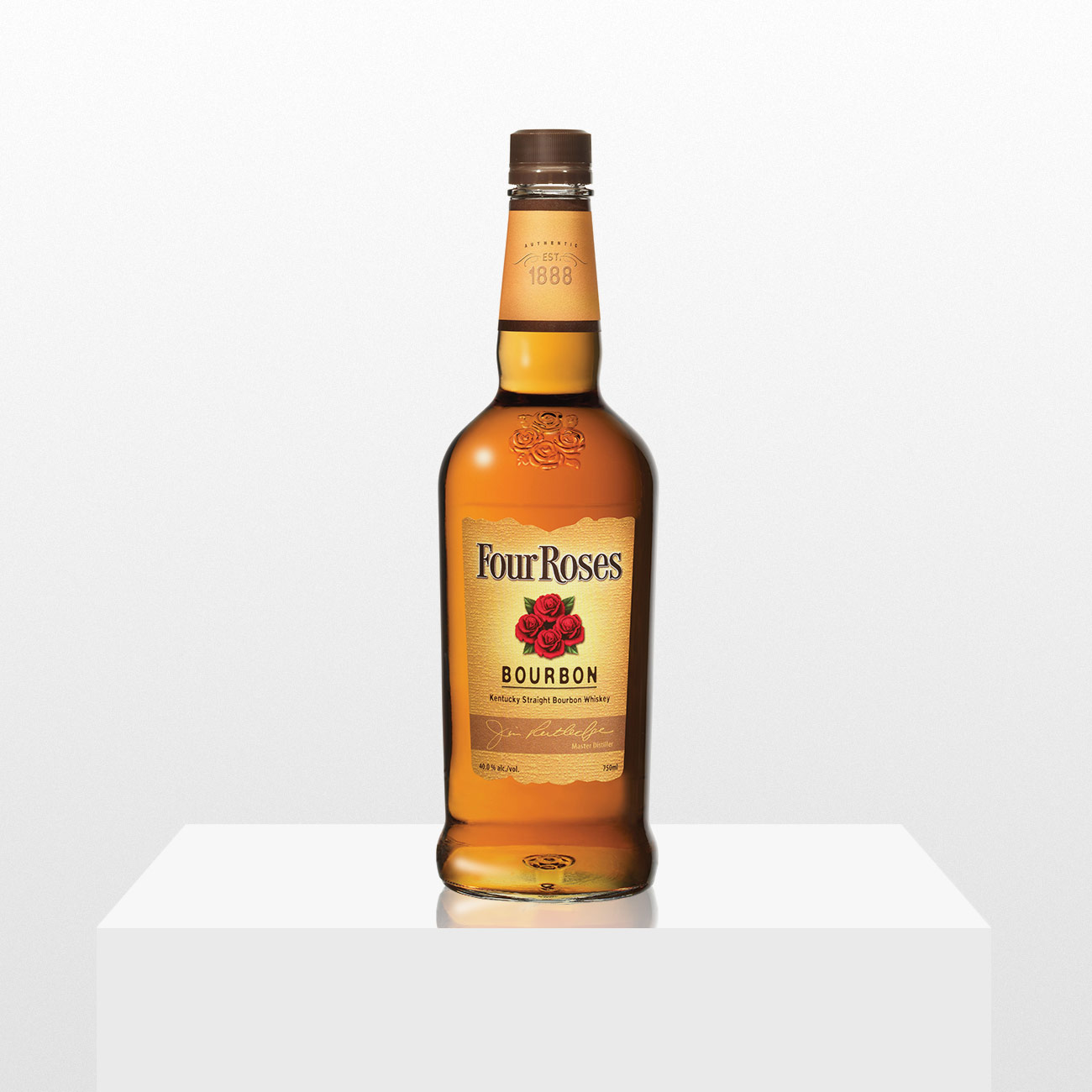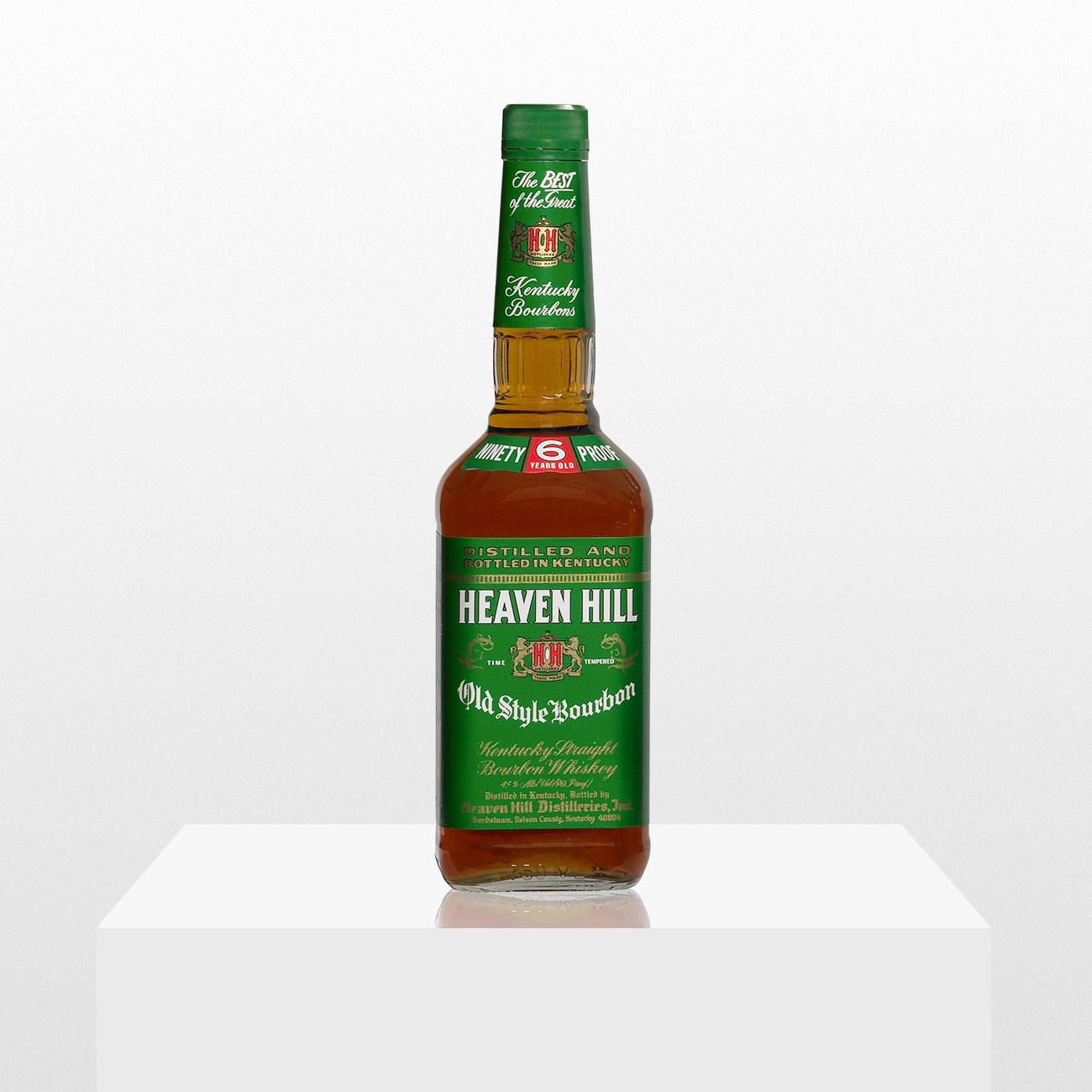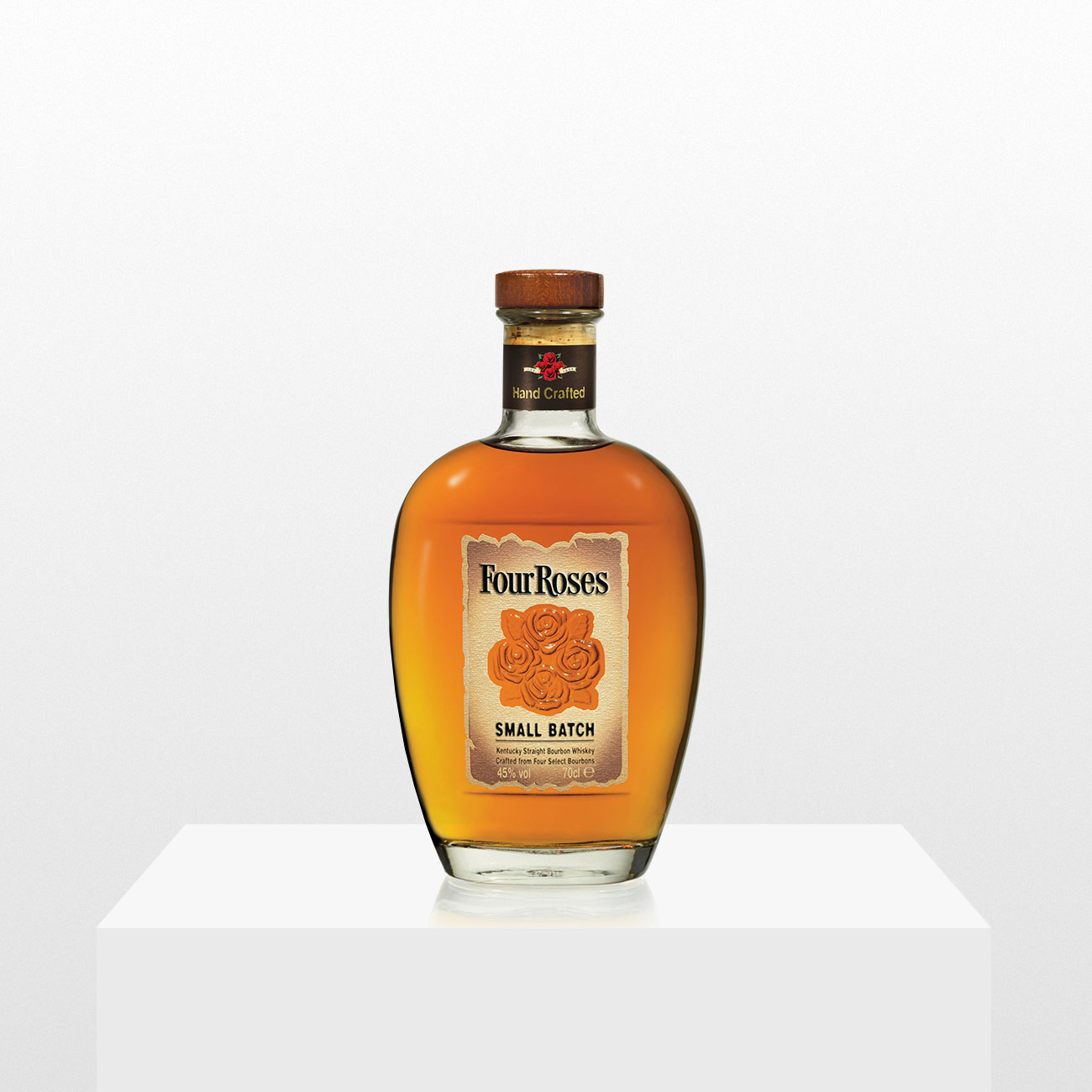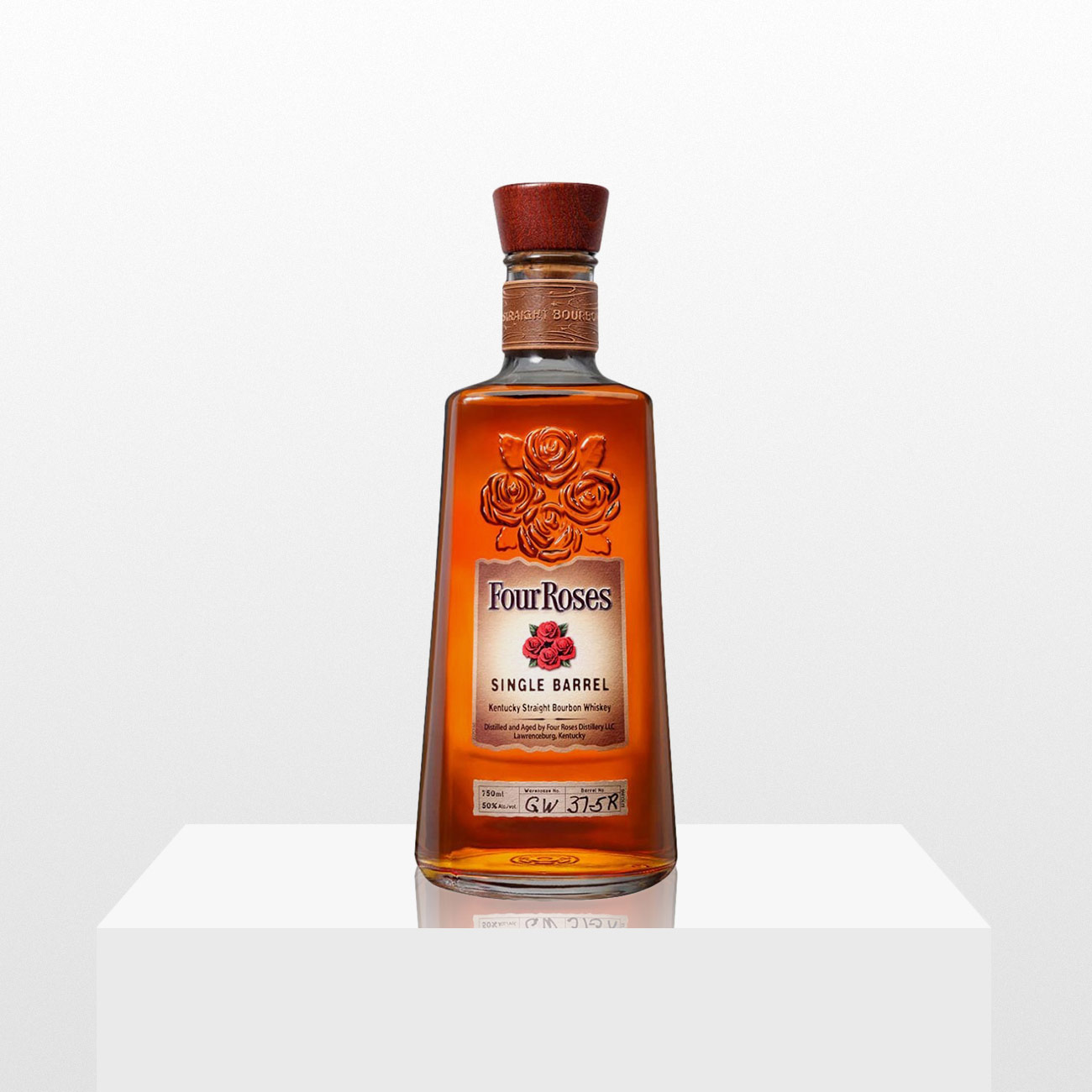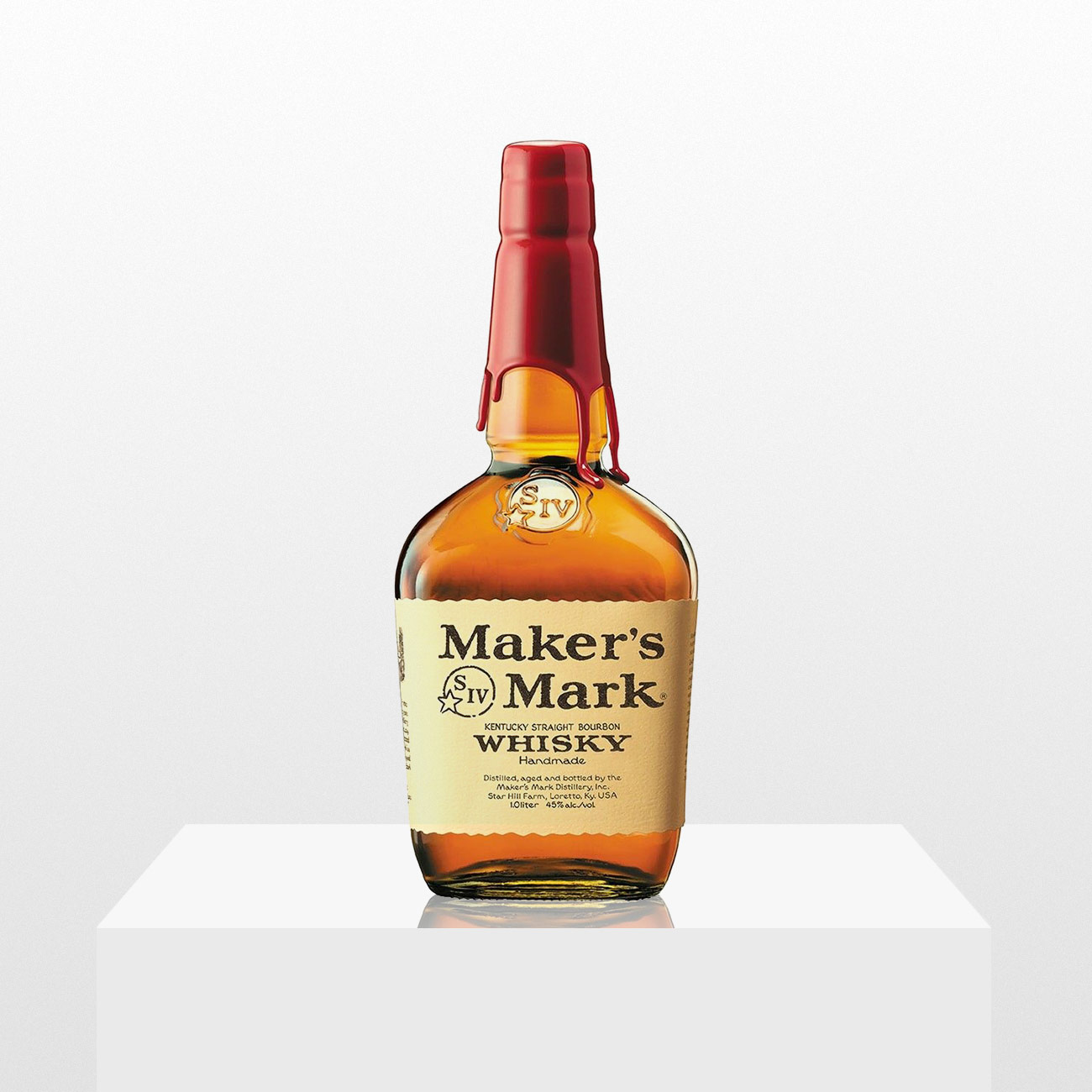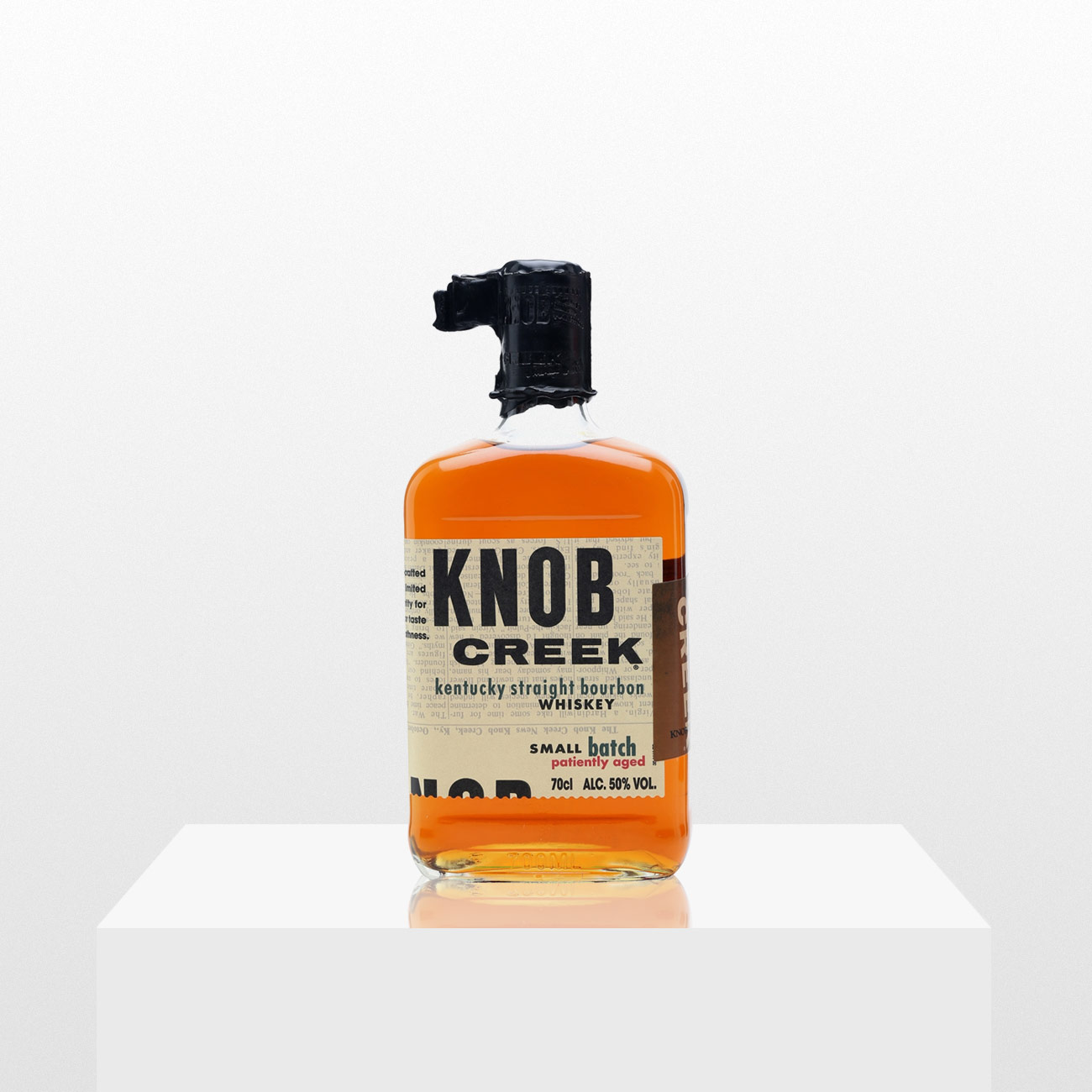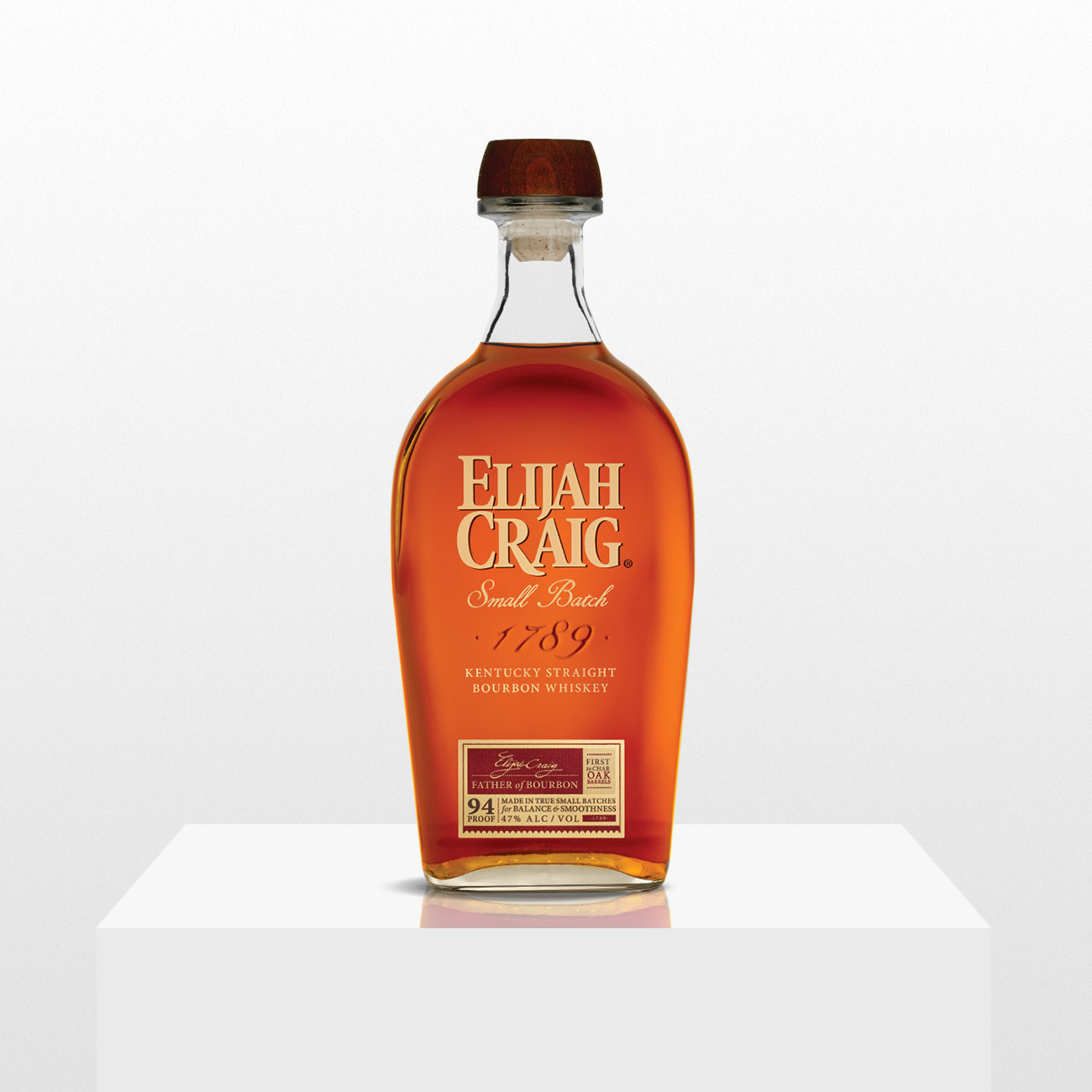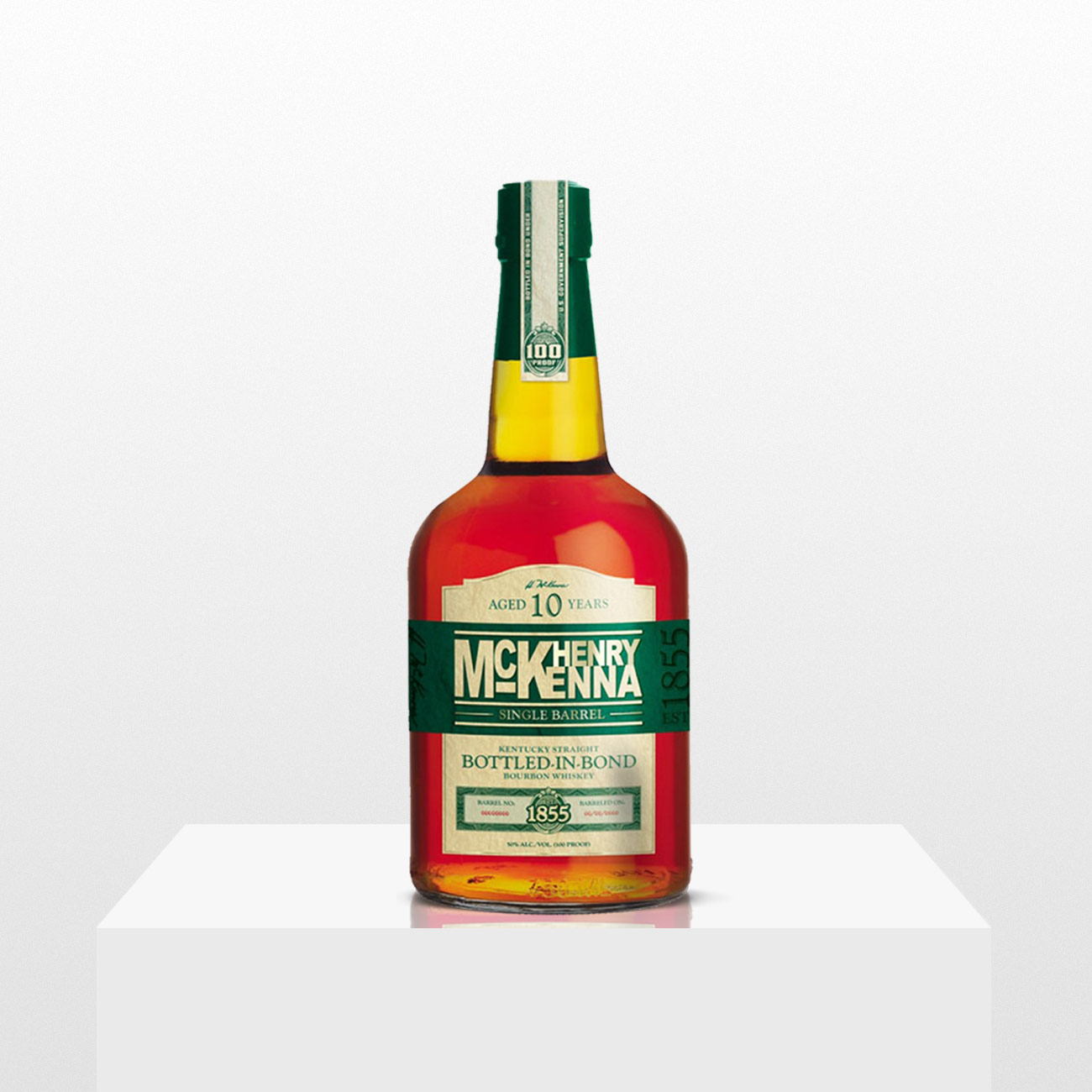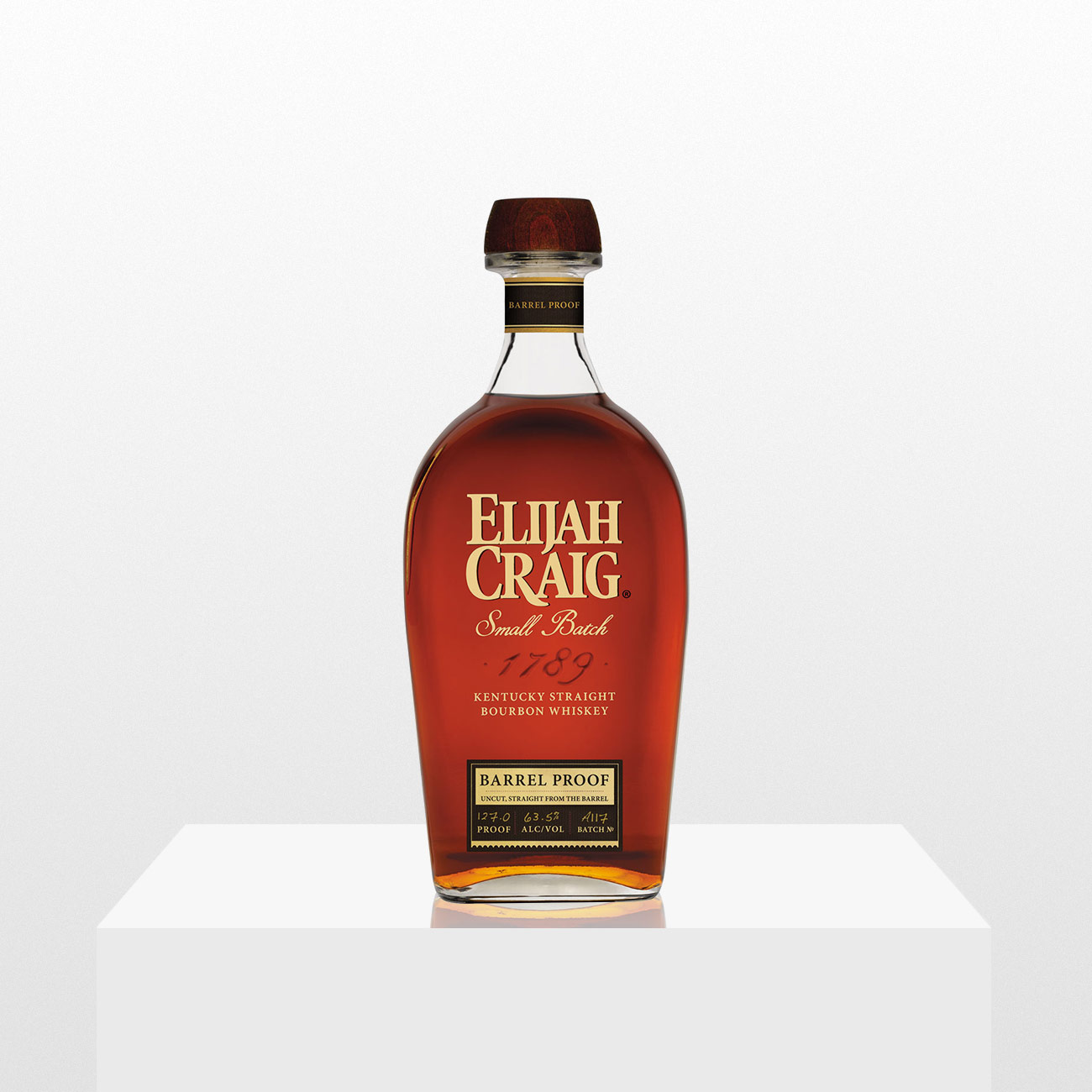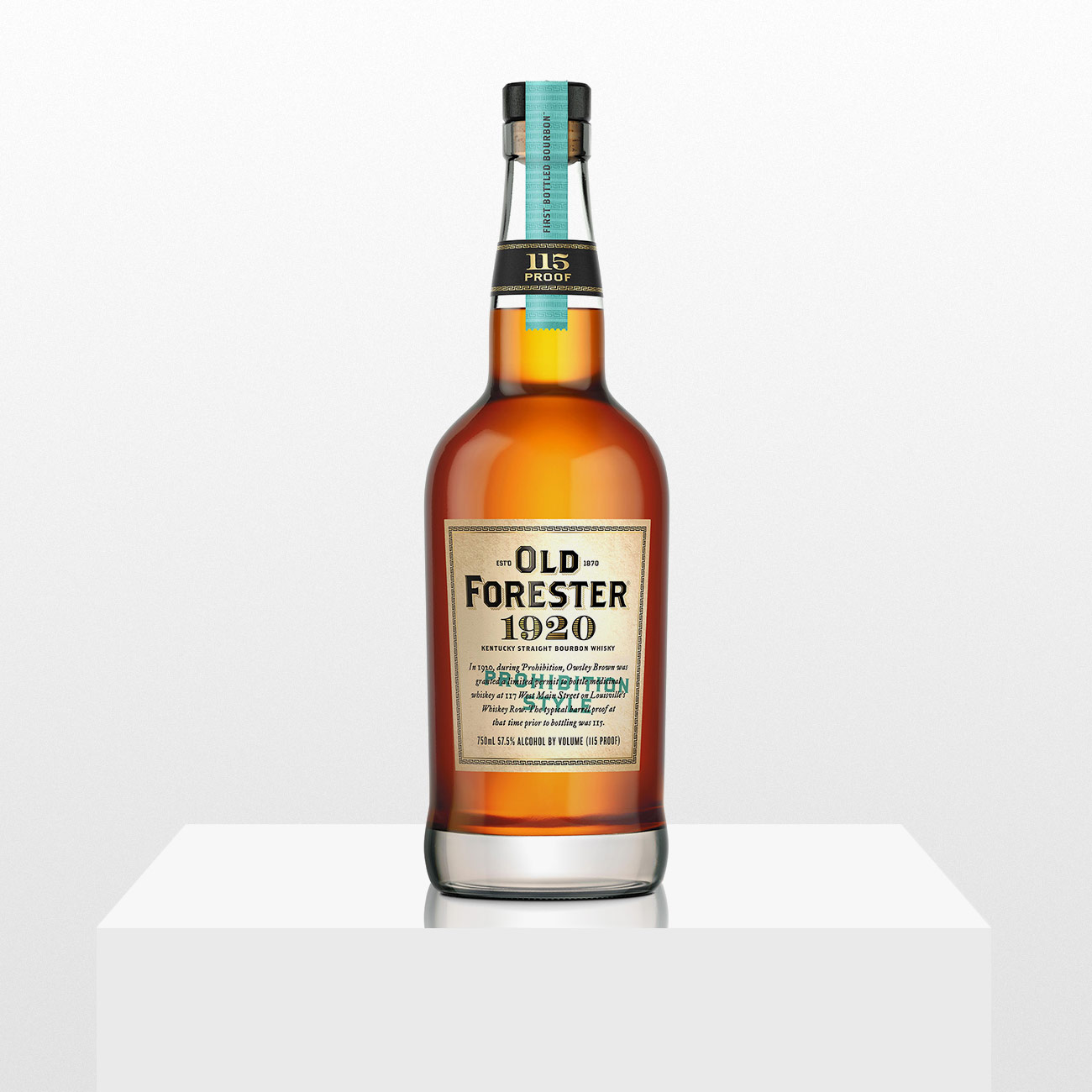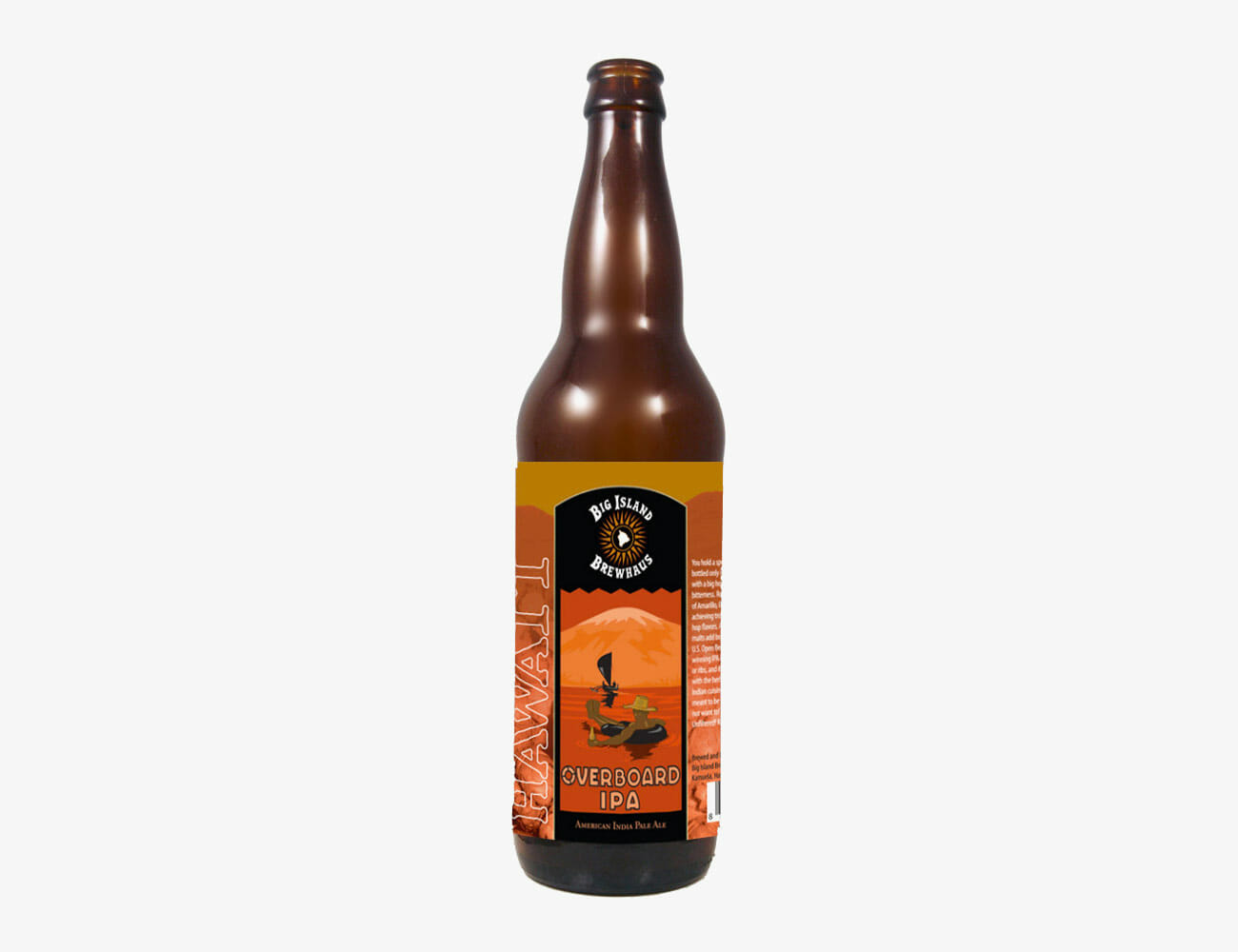Bourbon has never been more popular than it is right now. This definitive guide of the best bourbons of 2019 explores everything you need to know about America’s favorite brown spirit, including important terminology and, of course, a list of the best bottles you can buy at your local liquor store.
Prefer to skip directly to the picks? Click here.
The Short List
Best All-Around Bourbon: Buffalo Trace, $25+
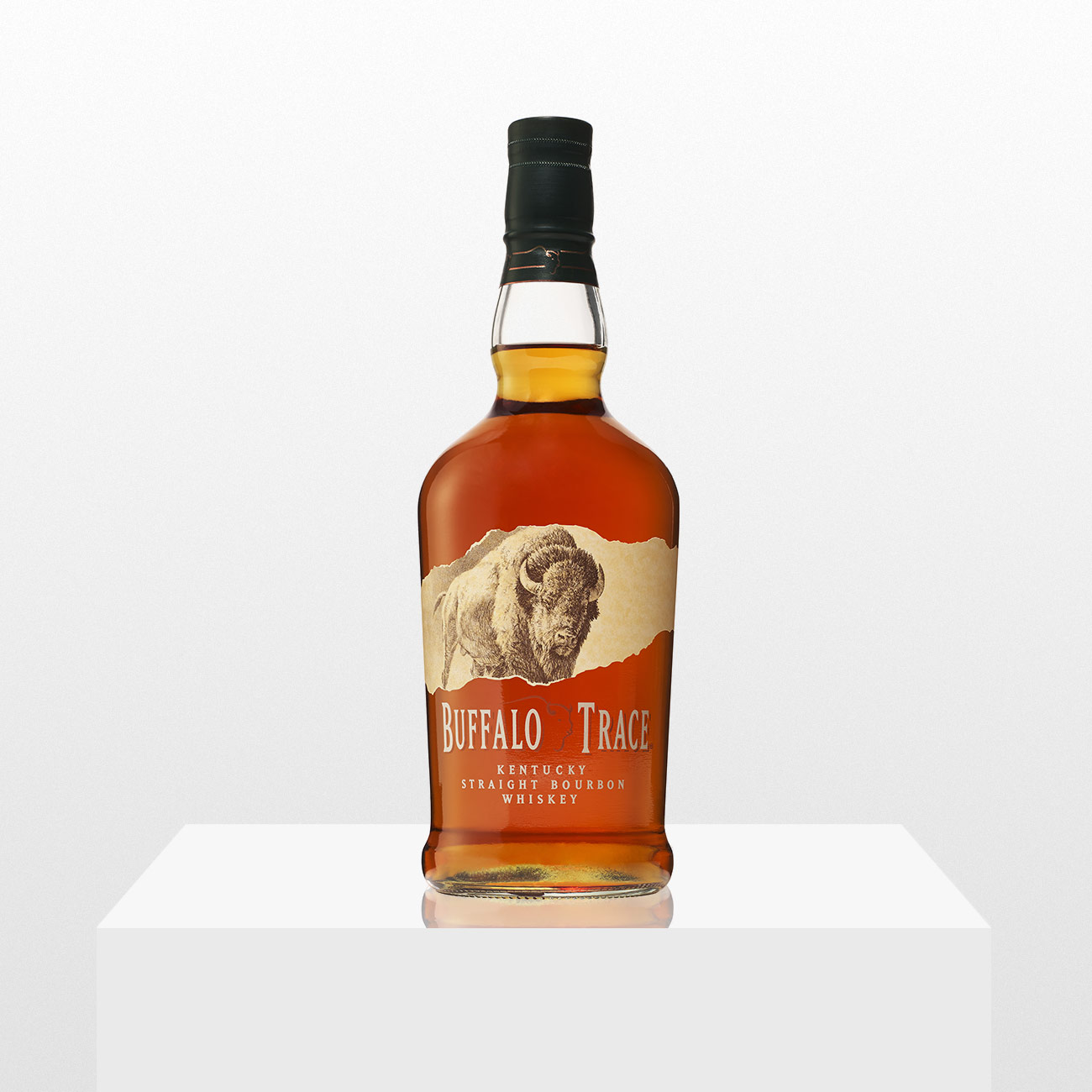
Good as a sipper and in cocktails, Buffalo Trace’s namesake bourbon is the perfect do-it-all whiskey. What’s more, each bottle is a kind of lottery. Given Buffalo Trace’s lineage of excellent whiskeys from W.L. Weller, George T. Stagg and Van Winkle, there’s a chance you stumble upon something special.
Tasting Notes: Strong notes of caramel and nutmeg, with hints of hay and apricot on the nose and a “snap-crackle-pop mouthfeel.”
Average Price: $25 – $35
Best Value Bourbon: Evan Williams Black Label, $11+
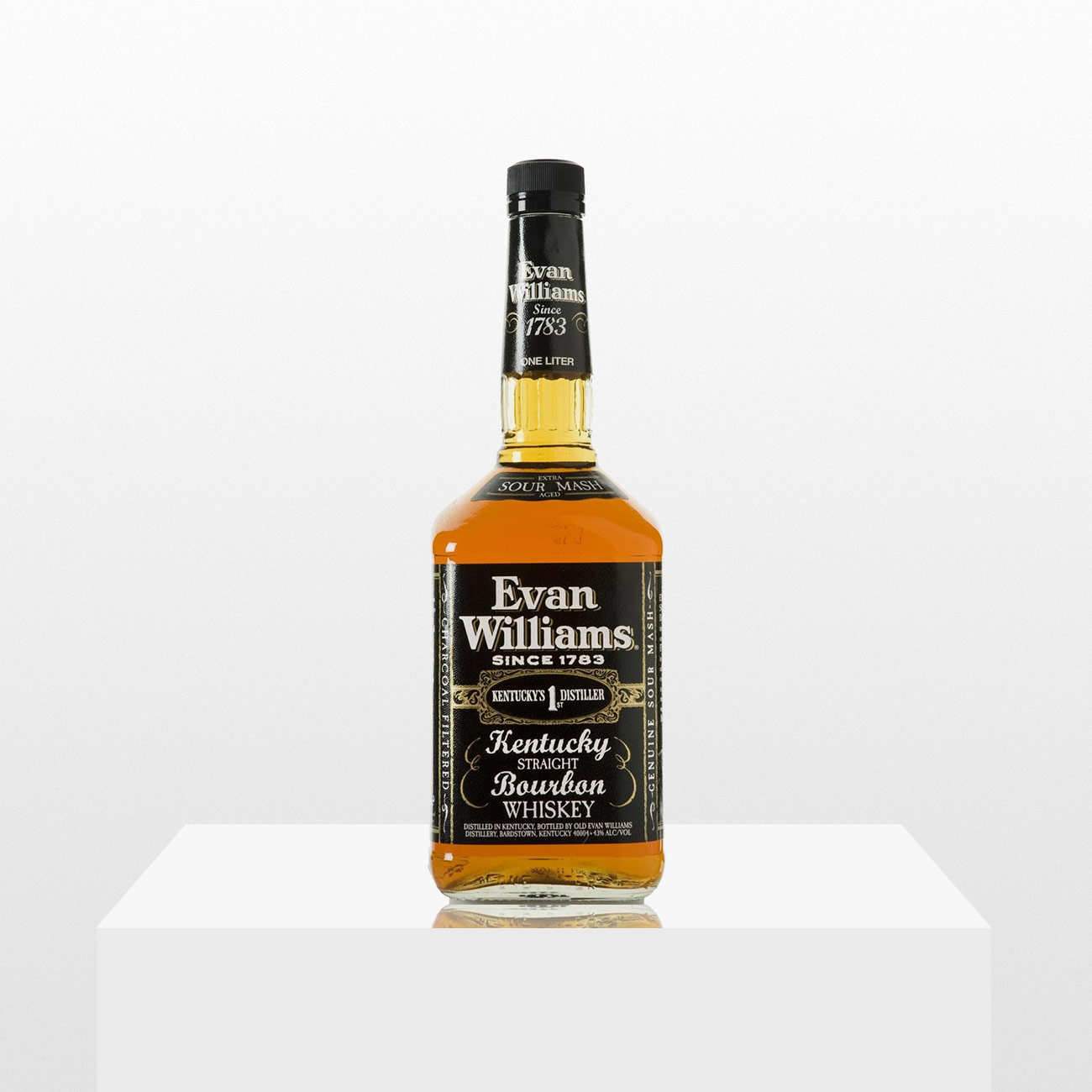
“If Evan Williams were to sell this whiskey to someone else, that brand would mark it up to $40, and people would be happy buying it,” says expert whiskey reviewer Fred Minnick. But Evan Williams is a value brand. So its whiskey, at a great proof point of 86 and an age that Minnick says is roughly five-and-a-half years old, goes for less than $20. “It’s a fantastic bourbon, especially for the money,” he says.
Tasting Notes: Well rounded, with a range of flavors including brown sugar and nutmeg atop the standard range of vanilla and caramel.
Price: $11 – $15
Introduction
Bourbon, the Great American Spirit, is not as simple as one might think. Yes, its definition is writ in but a few sentences on the holy stone of Federal Decree: It must be made in the United States; its grain bill must include at least 51 percent corn; it must be produced at not more than 80 percent alcohol (160 proof) and stored in charred new oak containers at no more than 62.5 percent (125 proof). And yes, it is a blue-collar spirit, made by thirsty farmers, for thirsty farmers. But underneath these fundamentals swims a deep sea of factors — additional rules and regulations, hype machines and deceptive marketing, false myths and a boom that began in 2008 and is still going strong today — that make bourbon more complex than it seems. Sour mash and Bottled-in-Bond, non-distiller-producers and high-ryes. Where’s the thirsty modern man, farmer or otherwise, to begin?
“Because of bourbon’s continued growth in popularity, the misinformed malcontents are spreading like a bad virus,” writes Fred Minnick in his 2015 standout guide, Bourbon Curious. Minnick loves bourbon; he’s written seven books and three of them involve America’s brown spirit. But he’s not afraid to dissect its misguided marketing and secretive practices. Bourbon Curious opens with plenty of stick (“the proof, age, and whiskey type are the only things you can trust on an American whiskey label”) before getting to its carrot: hundreds of pages of information and mouthwatering tasting notes on just about any bourbon you’ll find on liquor store shelves. The key to understanding it all, Minnick says, is transparency from brands combined with an understanding of a term most bourbon drinkers don’t use: terroir.
“Spirits tend to gravitate toward branding, whereas wine gravitates toward terroir,” Minnick says. “But an educated bourbon consumer can piece together terroir — and really, it’s by distillery.” The top bourbon distilleries — Four Roses, Buffalo Trace, Heaven Hill, Wild Turkey, Jim Beam, Brown-Forman and others — distill the bourbon that makes up a large number of brands you’ll find on liquor store shelves that are worth drinking. Minnick’s recommendation for the novice: Familiarize yourself with those distilleries and try to pick apart the distinct flavors produced by each, whether that’s Wild Turkey’s funky note or Four Roses’ spicy flavors. “If someone really wants to get into this hobby and this world, they have to immerse themselves,” he says.
To help you in your bourbon journey, we asked Minnick to discuss the absolute best bourbons across three price points — everyday values, mid-range palate builders and rare gems. Before we get to the bottles, however, a quick primer on terminology and pricing. If you prefer to skip directly to the picks, click here.
About Our Expert
Fred Minnick is a Wall Street Journal best-selling author and the Editor-in-Chief of Bourbon+ magazine. He’s written seven books, including a memoir about shooting combat photography in Iraq. Today, however, his main focus is whiskey. He also serves as an expert panelist for spirits competitions and is the “bourbon authority” for the Kentucky Derby Museum.
Bourbon Terms to Know
Bourbon Whiskey: Whiskey produced in the U.S. at not exceeding 80 percent alcohol by volume (160 proof) from a fermented mash of not less than 51 percent of corn and stored at not more than 62.5 percent alcohol by volume (125 proof) in charred new oak containers.”
Straight Bourbon Whiskey: “Bourbon whiskey stored in charred new oak containers for two years or more. ‘Straight bourbon whiskey’ may include mixtures of two or more straight bourbon whiskeys provided all the whiskeys are produced in the same state.”
Bottled in Bond: “The spirit must be the product of one distillation season by one distiller at one distillery. It must have been stored in a federally bonded warehouse for at least four years and be bottled at 100 proof. The bottled product’s label must identify the distillery where it was distilled and bottled.”
Sour Mash: A fermentation technique used by almost all bourbon distillers that employs pre-fermented mash from a previous distilling in a new mash. The sour mash prevents wild yeast from entering the mash and causing infections.
Proof: The percentage of alcohol, displayed as double that of the alcohol percentage.
High Rye: A bourbon with a higher than normal percentage of mash bill made up of rye (as opposed to using more corn, wheat, or barley, the other main grains used in bourbon mash). This tends to produce spicier flavors in the bourbon.
Wheated: A bourbon with a higher than normal percentage of mash bill made up of wheat (the main grain remains corn). This tends to produce a softer, less spicy whiskey.
Small Batch: A subjective term signaling a bourbon made using a select number of barrels or recipes in a blended bottling.
Single Barrel: A bourbon made using single barrels, providing a higher range of variation in flavor, and the chance at specific, unique characteristics.
Non-Distiller Producers (NDP): Companies that purchase their whiskey from someone else rather than making it themselves. This is not a new phenomenon and it plays a large role in blended bourbons.
Best Budget Bourbons
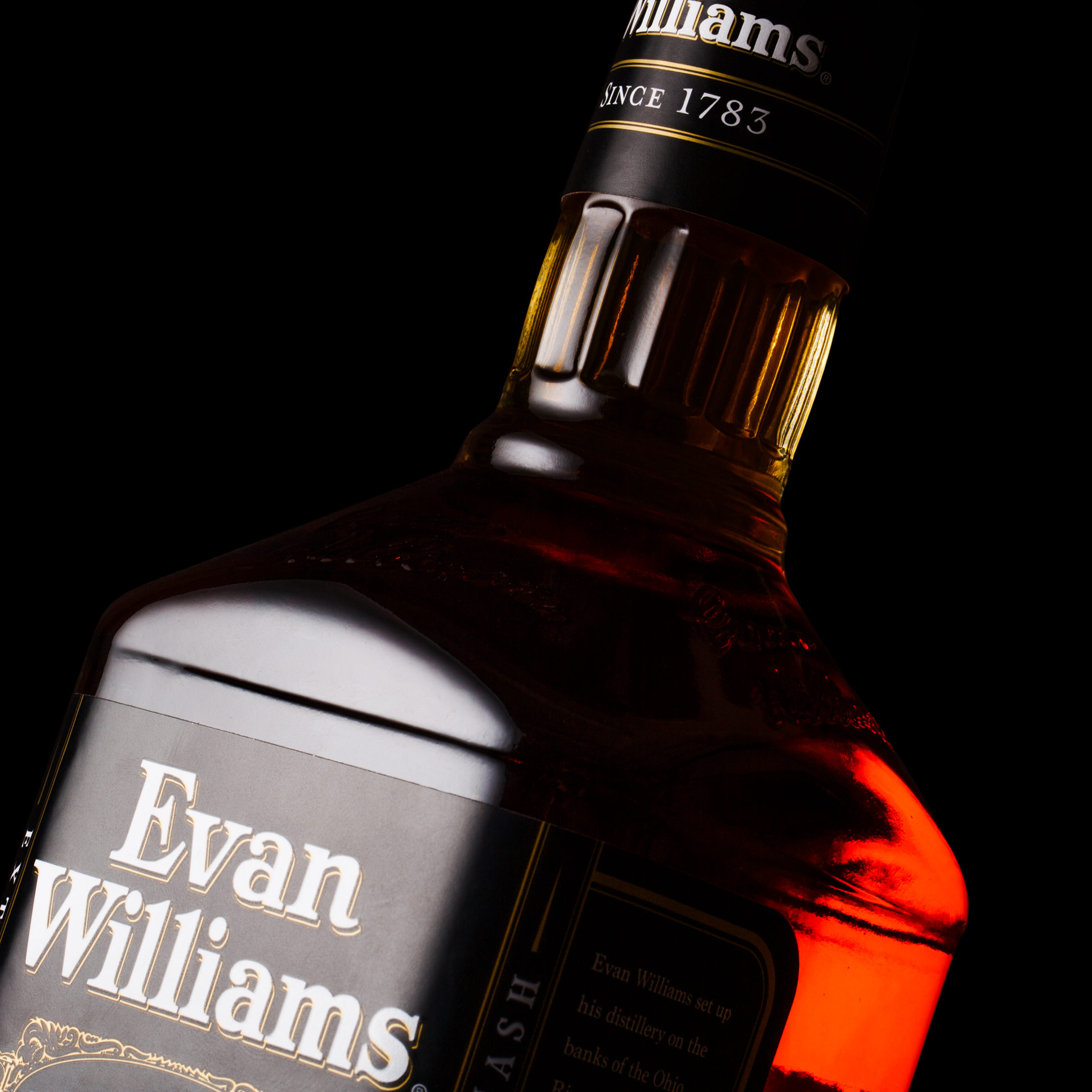
These bourbons are all under $25. They have some of the same flavors found in the world’s best, most sought-after whiskeys. They just don’t carry the same level of complexity; the flavors tend to come and go more quickly.
“A more expensive whiskey might have this rich note that lasts for ten to twelve seconds,” Minnick says, “whereas a cheaper bottle has that note just for one to two seconds.” Still, this price range has the best value of the entire market, and it also provides opportunities for bourbon to be used in cocktails — or as gifts.
Best Value Bourbon: Evan Williams Black Label
Verdict: “If Evan Williams were to sell this whiskey to someone else, that brand would mark it up to $40, and people would be happy buying it,” Minnick says. But Evan Williams is a value brand. So its whiskey, at a great proof point of 86 and an age that Minnick says is roughly five-and-a-half years old, goes for less than $20. “It’s a fantastic bourbon, especially for the money,” he says. “You can get a lot of satisfaction out of that.”
Proof: 86
Distilled By: Heaven Hill
Tasting Notes: Well rounded, with a range of flavors including brown sugar and nutmeg atop the standard range of vanilla and caramel.
Price: $11 – $15
Best Bourbon for Cocktails: Four Roses Yellow Label
Verdict: “This is such a dynamic whiskey,” Minnick says. “And it’s the best cocktail bourbon out there.” Four Roses is a highly regarded distillery, with a high-rye mash bill that produces an extra spiciness and a concentration on yeast that has been “eye-opening” for the bourbon world. They’ve also led the way in transparency. “They’ll tell you everything there is to know about their whiskey — they don’t hide the mash bill, the distillation proof. I presume you could ask ’em how much their CEO makes and they’d tell you,” Minnick says.
Proof: 80
Distilled By: Four Roses
Tasting Notes: An earthy nose, but spicy on the tongue, with immediate and pleasant notes of cinnamon and baking spices.
Price: $12 – $20
Best Kept Secret: Heaven Hill 6-Year-Old Green Label
Verdict: This is the bourbon Minnick buys as a gift for his family and friends. “It’s 90 proof for around $9, and you just don’t beat it for the money,” he says. “I’ve done some blind tastings with it and it out-tastes Jack Daniels, Jim Beam, even Buffalo Trace in one tasting.” But it’s only available in Kentucky. Why? “I have some theories about that,” Minnick says. “The Shapiras, the people who own Heaven Hill — this label is for them and their employees. It gets zero marketing dollars.”
Proof: 90
Distilled By: Heaven Hill
Tasting Notes: Corn, vanilla, caramel and brown sugar, with oak tannins.
Price: $9 – $12 (only available in Kentucky)
Best Budget Sipper: Larceny Bourbon
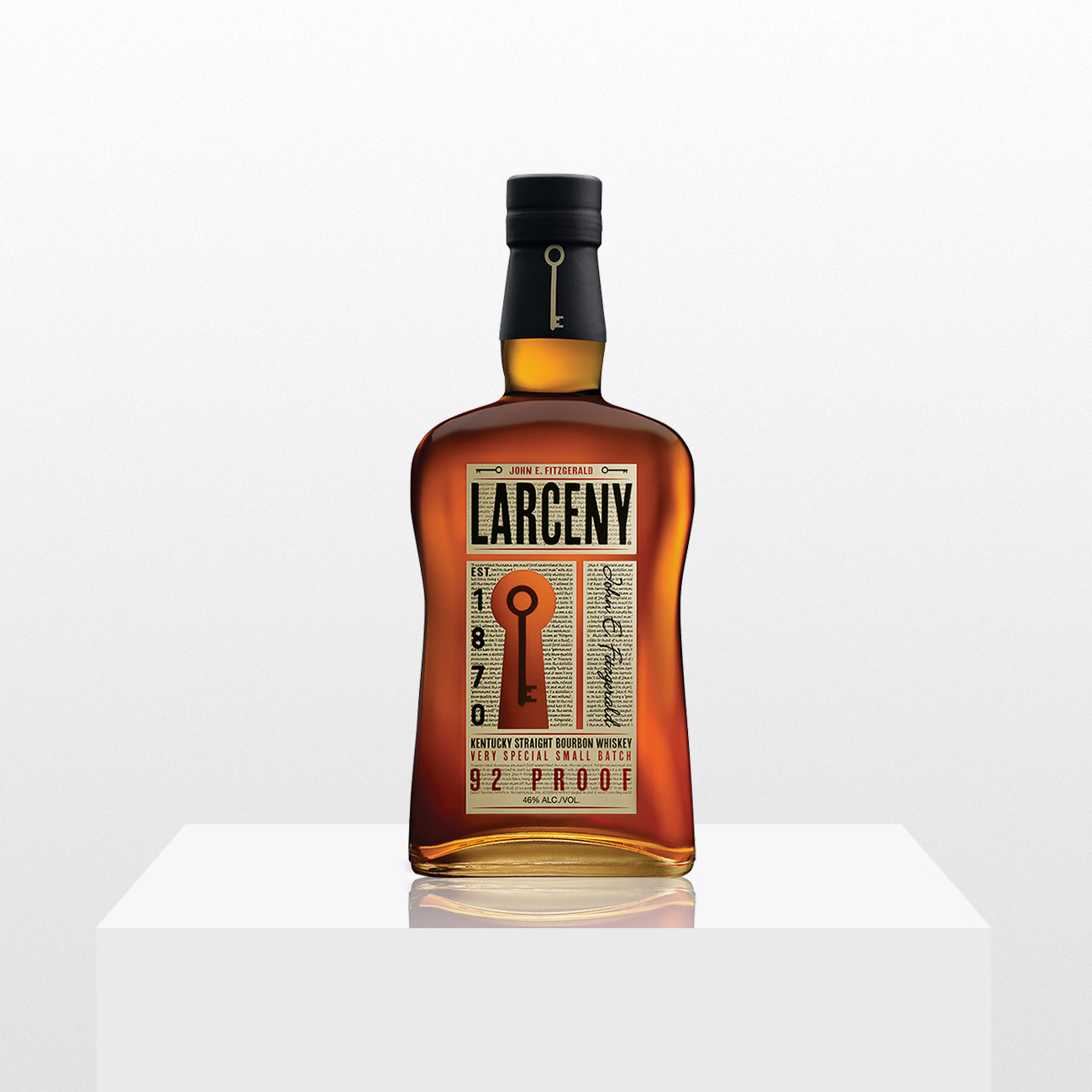
Verdict: “This has an incredible sweetness to it,” Minnick says. “It’s not complex, but the sweetness is really nice — the way it hits the palate. It’s a good, inexpensive, wheated everyday sipper.”
Proof: 92
Distilled By: Heaven Hill
Tasting Notes: It’s a wheated bourbon, with loads of bready sweetness, butterscotch, and toffee.
Price: $20 – $25
Best Everyday Bourbons
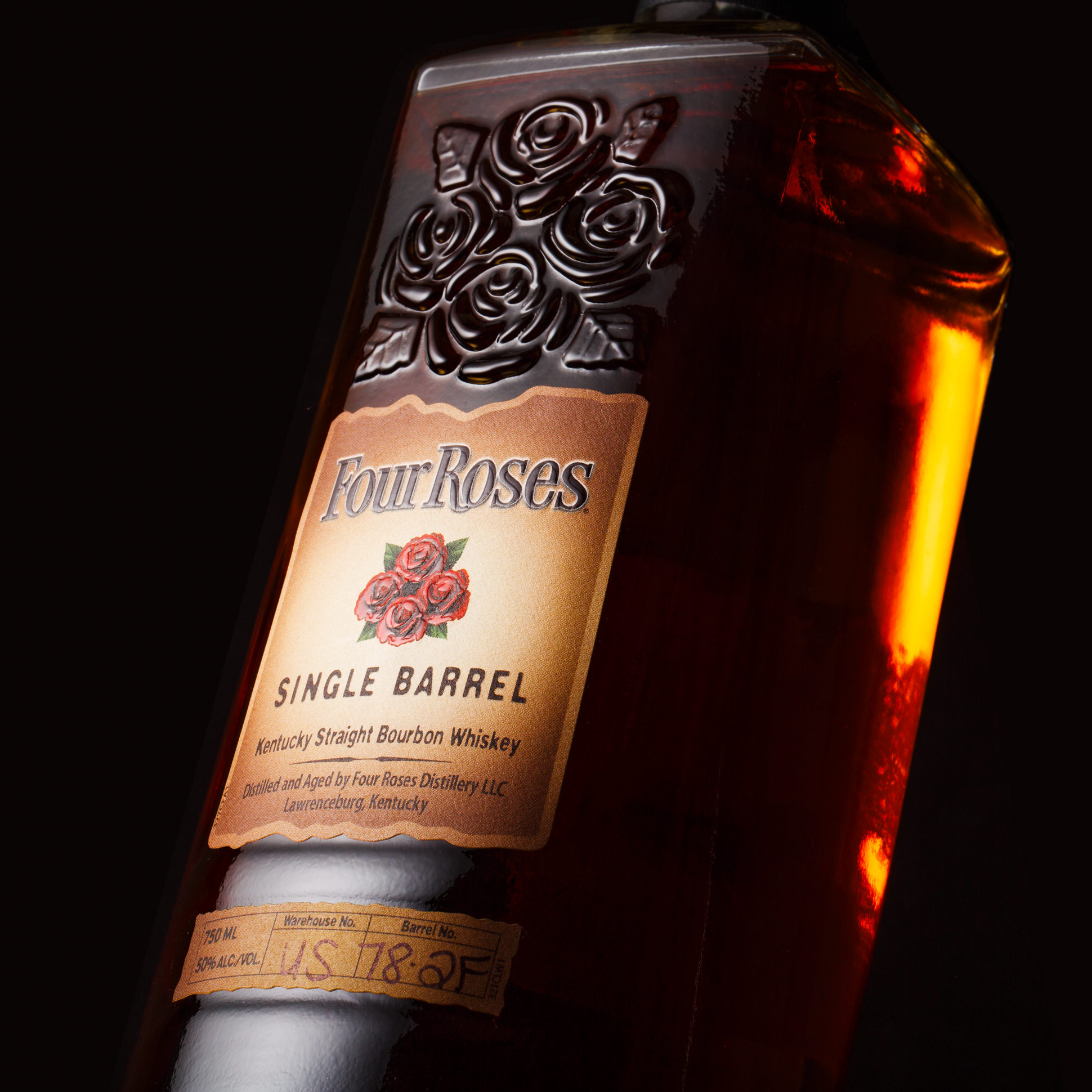
According to Minnick, this is where the majority of the bourbon world lives. “You start with the six- to twelve-year-old bourbons that you can find regularly.” What changes from the entry-level spirits is complexity. The very best bourbons in this range “will have note after note after note after note, and then you can still taste that dominant note on your palate,” Minnick says.
Best Gateway Bourbon: Four Roses Small Batch
Verdict: Four Roses’s upgrade over Yellow blends 180 barrels of four different recipes per bottling. “If you love cinnamon notes, you’ll love this,” Minnick says. It’s more complex than Yellow, but still drinks easy. “It’s what I want to sip at a ballgame.”
Proof: 90
Distilled By: Four Roses
Tasting Notes: cinnamon, citrus, caramel, vanilla, and an apple-pie sweetness.
Price: $30 – $35
Best Bourbon to Drink Neat: Four Roses Single Barrel
Verdict: Made using a single recipe and barrel per bottle, it’s between 7 and 8 years old and has more complexity than the Small Batch. “For being the same brand as the Small Batch, they taste very different. This one is more of a sipper. I want to really sit there and think about it when I’m drinking it,” Minnick says.
Proof: 100
Distilled By: Four Roses
Tasting Notes: Toasted marshmallow and campfire on the nose, adding cinnamon, caramel and vanilla on the tongue, with a particularly creamy mouthfeel.
Price: $40 – $50
Best Bourbon to Pair with Food: Maker’s Mark
Verdict: Minnick has a unique use for one of bourbon’s classic names. “I drink so much Makers with BBQ,” he says. Its mellow balance — helped by the prominent caramel notes of its wheated mash bill — doesn’t overpower meaty flavors.
Proof: 90
Distilled By: Maker’s Mark
Tasting Notes: On the nose, dried apricot, chocolate, coffee, and corn; on the tongue, bread pudding, caramel-apple, and pumpkin pie.
Price: $30 – $45
Best Rye Substitute: Knob Creek
Verdict: Its “cornbread” note makes this Minnick’s stand-in for rye in Manhattans. That cornbread flavor profile is shared across many Jim Beam bourbons, but Knob Creek’s 100 proof is the perfect expression of the flavor, as opposed to Booker’s 126 and Jim Beam Black’s 86.
Proof: 100
Distilled By: Jim Beam
Tasting Notes: Nutty on the nose, with a distinct cornbread flavor on the tongue.
Price: $30 – $40
The Smoothest Bourbon: Elijah Craig Small Batch
Verdict: Though it shares DNA with other Heaven Hill bourbons like Evan Williams and Henry McKenna, Elijah Craig Small Batch is balanced, with extra maltiness. “It’s got so much caramel, and a beautiful nutmeg note,” Minnick says. “This is all about the sweetness.”
Proof: 94
Distilled By: Jim Beam
Tasting Notes: Caramel, chocolate, vanilla, caramel, and a distinct nutmeg flavor.
Price: $25 – $40
Best All-Around Bourbon: Buffalo Trace
Verdict: Good as a sipper and in cocktails, it’s the perfect do-it-all whiskey. What’s more, each bottle is a kind of lottery, with a chance of something special, given Buffalo Trace’s lineage of “some of the greatest whiskies out there,” Minnick says — they include W.L. Weller, George T. Stagg, and Van Winkle. “Sometimes you get a bottle that just explodes in your mouth.”
Proof: 90
Distilled By: Buffalo Trace
Tasting Notes: Strong notes of caramel and nutmeg, with hints of baled hay and apricot on the nose and a “snap-crackle-pop mouthfeel.”
Price: $25 – $35
Best Bottled-in-Bond Bourbon: Henry McKenna Single Barrel
Verdict: The McKenna distillery was established in 1855, founded by the noted Irish immigrant distiller. Seagrams closed the business in the 1970s, and Heaven Hill purchased the brand name in 1994, but no longer uses the original recipe; as Minnick notes in Bourbon Curious, “The original yeast, mashbill, and flavor profile are gone, lost with time.” But one thing the new bottle does have is time: its 10 year age statement makes it one of the older bourbons at this price range.
Proof: 100
Distilled By: Heaven Hill
Tasting Notes: Rye spiciness, caramel, and vanilla, with a steady undertone of oak.
Price: $30 – $35
Best Craft Bourbon: New Riff Kentucky Straight Bourbon
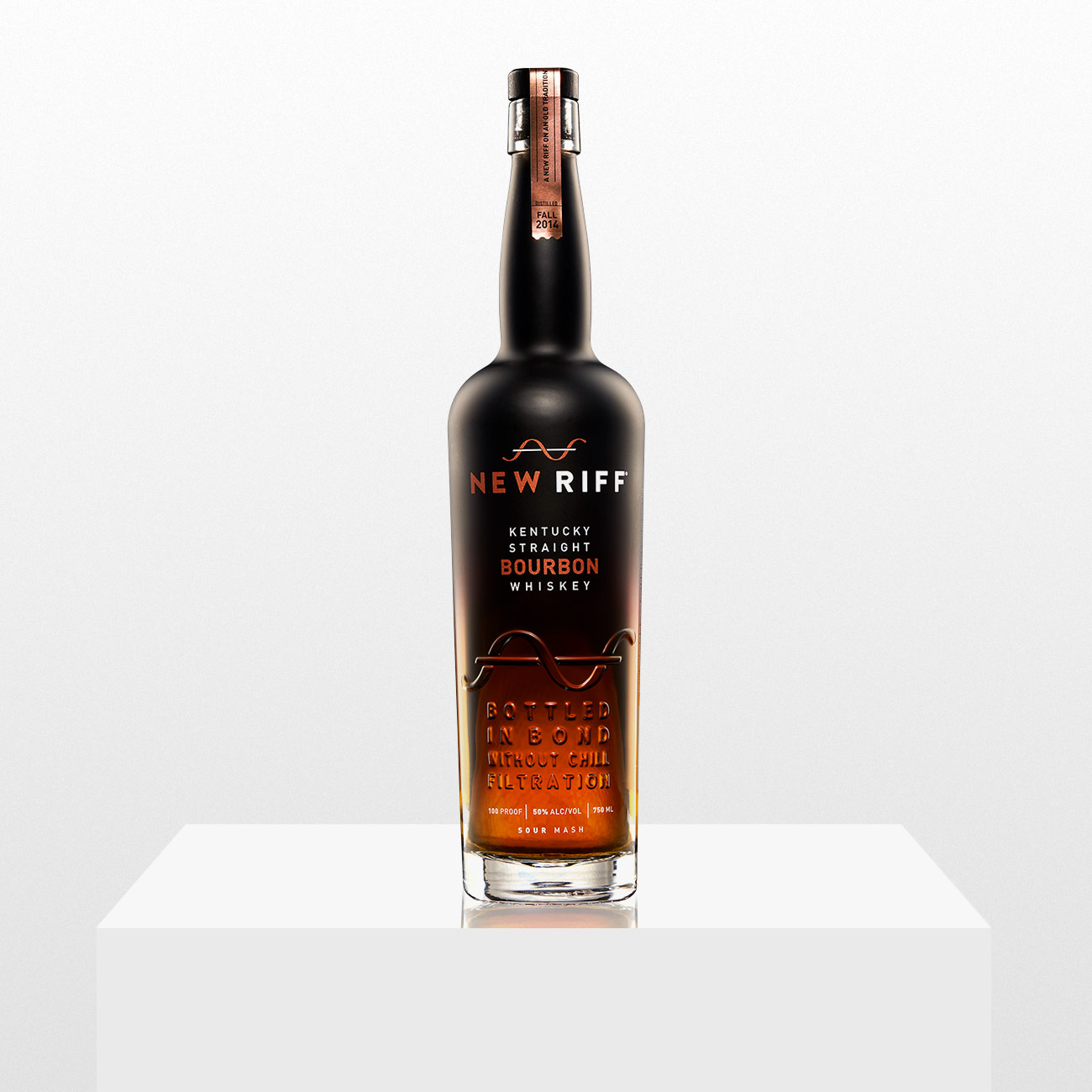
Verdict: New Riff Distilling was founded in 2014. “Relative to Kentucky, they’ve been around for a few days. The rest of the nation is just kinda getting to know ’em,” Minnick says. The mash bill here, made entirely of non-GMO grains, is 65 percent corn, 30 percent rye and 5 percent malted barley.
Proof: 100
Distilled By: New Riff Distilling
Tasting Notes: Oak tannins and vanillas, butterscotch, sweet corn and some rye spice at the finish.
Price: $40
Bucket List Bourbons
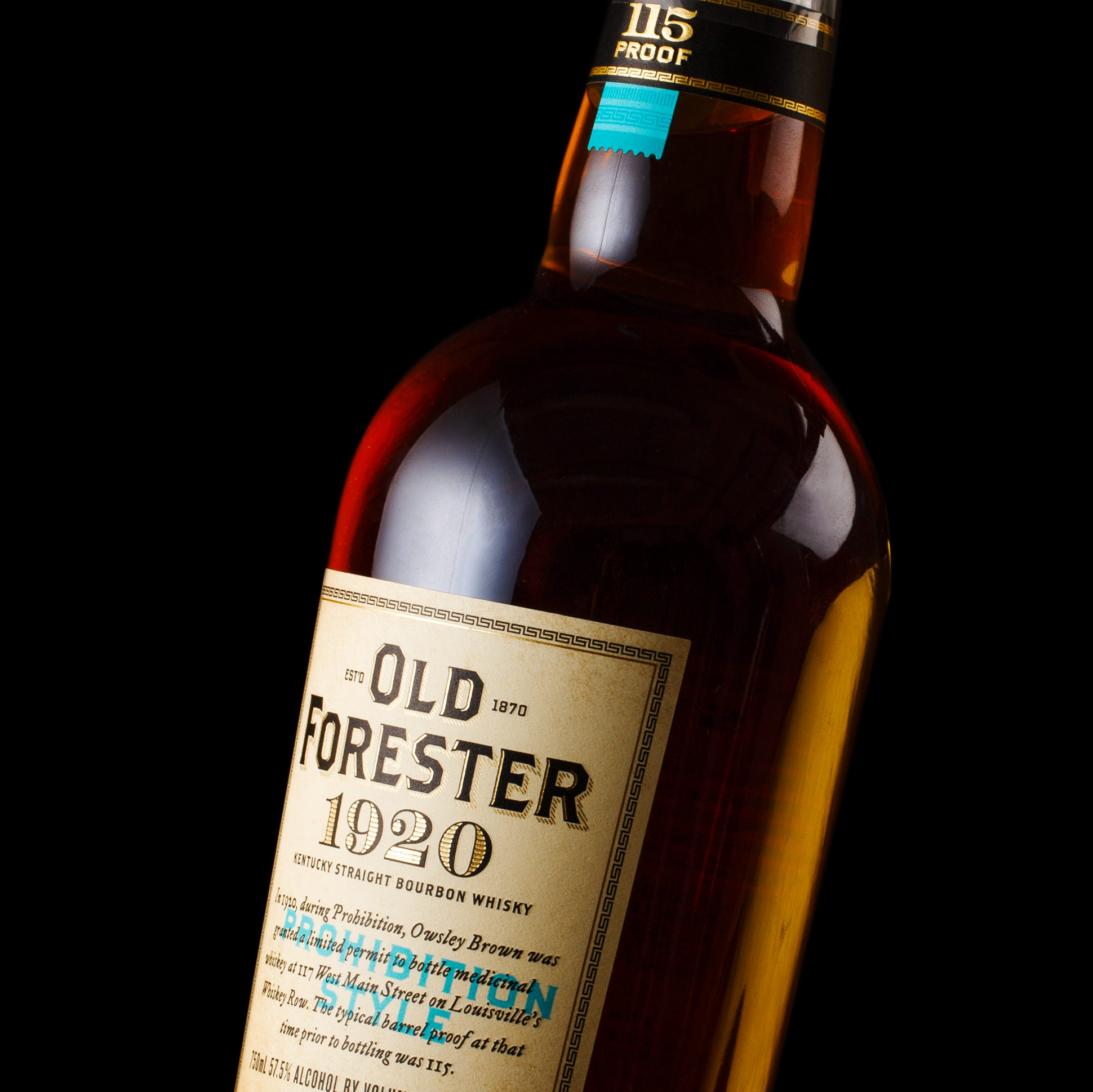
These run north of $60, all the way up to a month’s paycheck. Buying in this range is high risk, high reward. “Sometimes you’re gonna be disappointed,” Minnick says. “Just because a bourbon is 90 bucks doesn’t mean it’s good.” The benchmark bourbons at this range have upwards of 100 flavor notes to pick out, often happening at the same time and lingering on the tongue for ages. Or, as Minnick put it, the best should make you think, “If god gave birth to his bourbon child, this is what it would taste like.”
Best High-Proof Bourbon: Elijah Craig Barrel Proof
Verdict: This bourbon just won Whisky Advocate’s whiskey of the year, and Minnick was on the tasting panel. “It was very, very nice bourbon,” he says, wistfully. It has none of the harshness you’d expect from a 133.2 proof bourbon, and doesn’t undergo chill filtering — instead just using light filtration to remove barrel char flakes.
Proof: 133.2 proof
Distilled By: Heaven Hill
Tasting Notes: Caramels are rich, vanillas powerful. Minnick calls its notes “a party of pies: apple, cherry, blueberry, and even pumpkin.”
Price: $55 – $100
Most Nuanuced Bourbon: Old Forester 1920 Prohibition Style
Verdict: It’s bottled at 115 proof — “for this distillery, that’s the perfect proof,” Minnick says. “I’m going through a bottle a month. The notes kind of just linger. You can have five different notes hitting at once. I believe that to be the definition of nuance.”
Proof: 115
Distilled By: Brown-Forman
Tasting Notes: Dark notes of fruit and burnt brown sugar. Chocolate, creme brulee, and strong nuttiness on the palate.
Price: $60 – $80
Best Blended Bourbon: Barrell Craft Spirits 15-Year-Old Bourbon
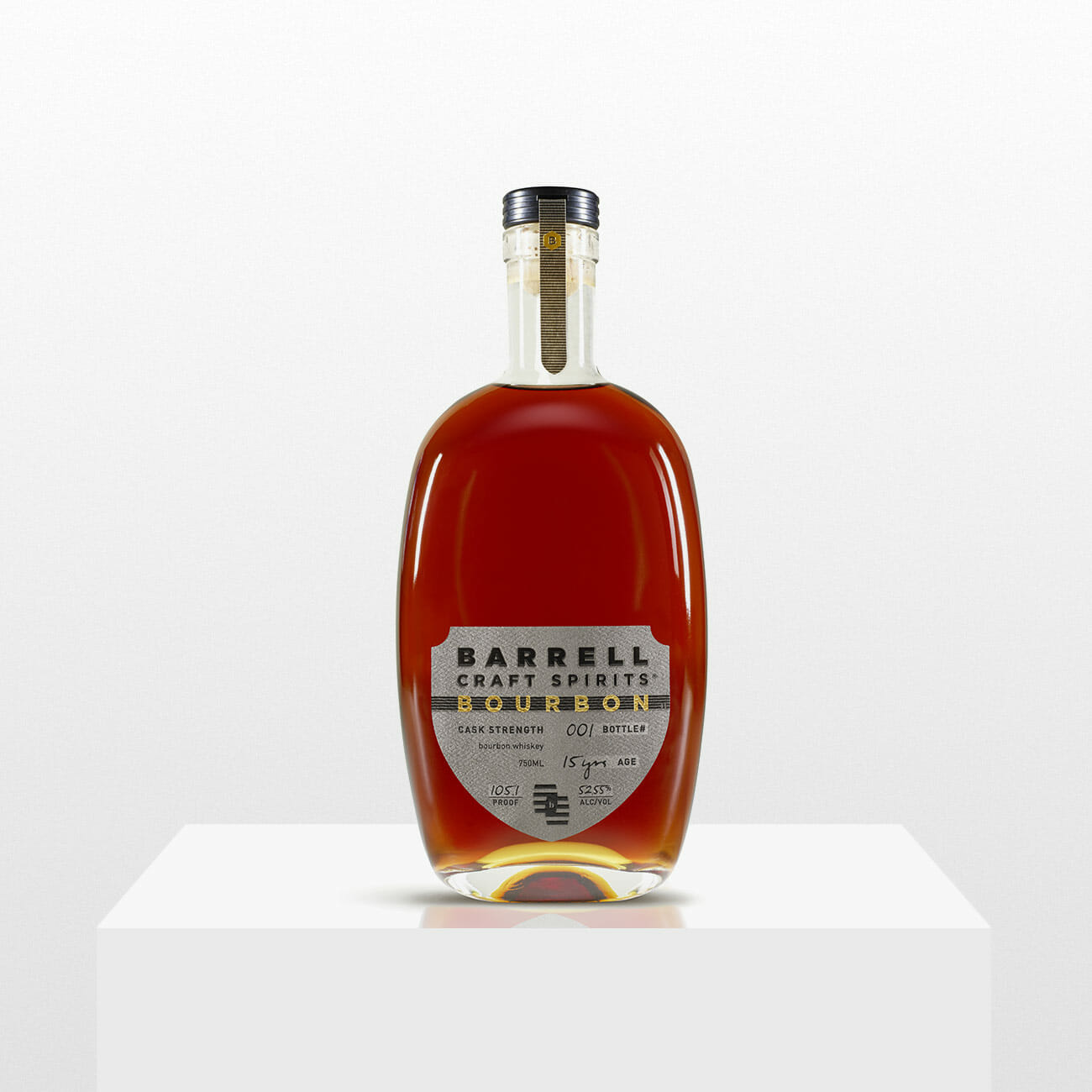
Verdict: Barrell is a blender, not a distiller. But its openness about the subject (blends have long been considered “rotgut”) and the flavor mastery of founder Joe Beatrice and master distiller Tripp Stimson have won the old bourbon guard over. “It won my American Whiskey of the Year award last year in a blind tasting,” Minnick says. “It’s got so much flavor to it, so much complexity — it’s just brilliant whiskey.”
Proof: 105.1
Distilled By: Blend of Indiana, Tennessee and Kentucky bourbons
Tasting Notes: fruit notes on the nose, with a blast of cocoa and butterscotch on the tongue, finishing with elegance.
Price: $300
Best Wheated Bourbon: Buffalo Trace William Larue Weller
Verdict: “Are we including bottles that are impossible to find?” Minnick asks. Sure. This treasure from Buffalo Trace’s Antique collection does its namesake a service, representing some of the world’s best wheated bourbon, a style Weller himself pioneered. “If God gave birth to a bourbon child, this is what it would taste like,” Minnick says. “It’s so fucking amazing.”
Proof: 128.2
Distilled By: Buffalo Trace
Tasting Notes: A caramel bomb, with immense vanilla notes on the nose. Dried fruits, nutmeg, and honey on the palate.
Price: $800+
Most Complex Bourbon: Four Roses Al Young Limited Edition
Verdict: File it under another bourbon you’ll never find on liquor store shelves. The 50th-anniversary whiskey is made in part of 23-year old bourbon and has, according to Four Roses brand ambassador Al Young himself, flavor profiles of “cinnamon, peaches and cherries, plus aromas of gardenias and magnolia blossoms.” Minnick scored it a 96 for Whiskey Advocate. “It’s just so complex,” he says. “Last I tasted it, I was up to 100 notes that I picked up on it. They have something special there.”
Proof: 109.98
Distilled By: Four Roses
Tasting Notes: On the nose, leather, maple syrup. On the palate, honeysuckle, cinnamon, and floral notes.
Price: $500+


